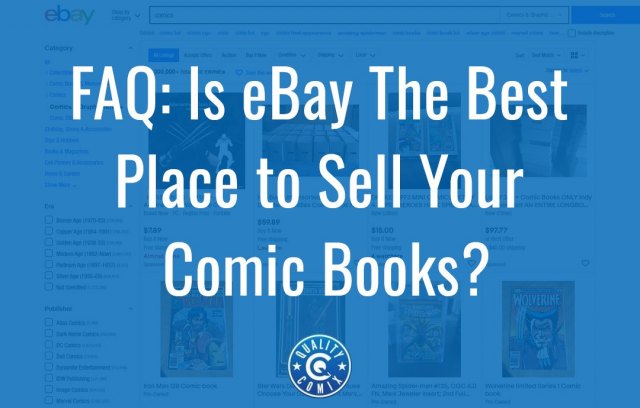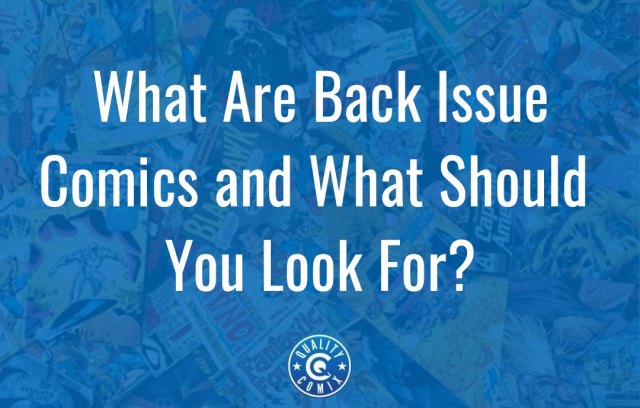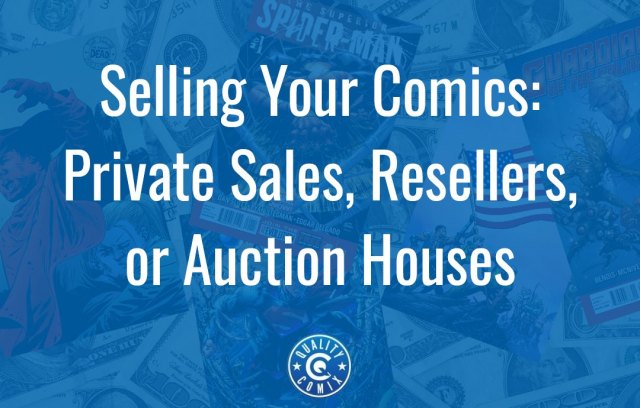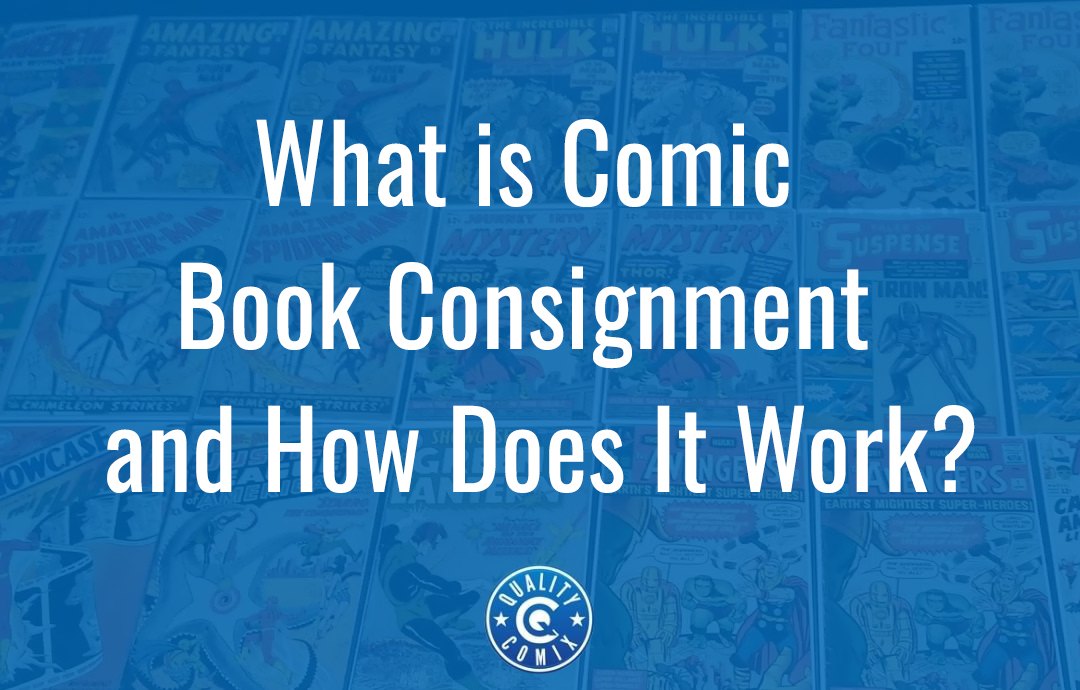
When you have a collection of comic books and want to sell them, you're presented with various options.
For one, you can sell them by yourself, one at a time, or in small lots. You can do this through yard sales, to private buyers, or on sites like eBay. This strategy is often the best way to maximize the money you get from selling your collection.
It's a ton of work! Unfortunately, it's also by far the most labor-intensive. You need to organize the collection, take photos of each book, write descriptions for websites that attract buyers, handle communications, deal with fake bids, refunds, and "lost" or damaged packages, and handle all the shipping. This process is relatively easy if the collection is small, organized, and valuable, and you know plenty about comics. On the other hand, if you've inherited an extensive collection, you may need some pointers on where to begin.
Another way to sell a collection is to offload the whole thing as one bulk lot. This process is fast and easy, but you're likely only to get 40% or so of the collection's total value. It's a vast cut primarily because you're offloading all of that work to the buyer. You can find interested buyers locally or online, or you can even sell directly to a shop.
On top of that, they're likely buying a bunch of bulk comics that are only worthwhile in search of key issues and valuable books.
There has to be a middle ground, right? Well, luckily, there is. It's called consignment.
Table of Contents
What is Consignment?
Consignment is nothing new, and it's not restricted to comic books. Here's how the process works.
You, the owner of the collection, are the consignor. You want to sell the collection but need more resources, connections, knowledge, or time to do so.
So, you find a consignee.
The consignee is typically a shop or dealer specializing in the kind of good you sell. In the case of comic books, most of the time, the consignee will be a well-known comic shop or dealer. This store could be a thrift shop, a pawn shop, or a specialized dealer.
You give your collection to the consignee. The consignee does all the legwork to identify, categorize, price, list, and sell the collection in whatever way they believe is most likely to get the right balance between the most money for your collection and the fastest sale time.
Consignees often don't want to sit on inventory for a long time, so they either list items priced to sell or have a time limit, after which they return unsold merchandise to you.

This process sounds too good to be true, right? You get the most money you can get from your collection, and someone else does all the work selling it. So, what's the catch?
The "catch," such as it is, is what the consignee gets out of it. Specifically, the consignee receives a commission from the items they sell, usually in the form of some percentage of the sale price. This commission covers their costs and includes compensation for the time they spend selling it, the fees the sale platform like eBay takes, and a bit more off the top for their bottom line.
In the case of comic book collections, you, as the consignor, hand over the group of comic books to a reputable shop, which lists the items to sell through venues like their own storefront or sites like eBay. They take their commission on sold items and can decide whether to pay for the remaining items that don't sell right away or hand them back to you.
One additional factor is that sometimes, consignment requires a fee from the consignor. This fee is most relevant in cases where the comics are given shelf space in a storefront; you pay a fee to keep those comics in that display. This cost varies based on who you're working with, so you may or may not need to pay such a fee. If your comics aren't in exceptionally high demand, you don't want to be paying to be on their shelves for months or even years.
The Pros and Cons of Consignment for You, the Seller
As the owner of the collection and the consignor, there are a handful of pros and cons of using consignment to sell your collection.
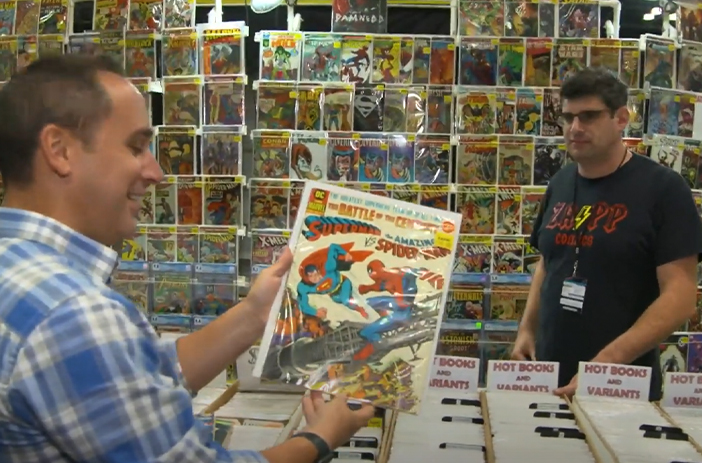
First, the pros:
- You save a ton of time since you don't need to manage listings, communications with buyers, or shipping and handling.
- You have a greater chance of selling your items since you're piggybacking off the reputation and exposure of the consignee.
- You're more likely to maximize the amount of money you get from each book (short of doing all the legwork yourself.)
On the other hand, there are always a few cons to any deal.
- You have fees you need to pay to the consignee, which can be steep, though the fees won't be as steep as if you sold the whole collection as-is in bulk.
- Anything that doesn't sell is returned to you and may be harder to sell later since all the valuable books are already gone.
- You rely on the consignee's exposure, advertising, and throughput to successfully sell your collection.
On top of all this, there's also an element of trust. You're handing a whole collection to someone and trusting the business to pay you when your comic books sell. Good, trustworthy consignees will undoubtedly do so, but there's always the risk of a shady shop or dealer "losing" books, claiming they sold for less than they did, or simply ghosting you. This situation is quite rare, but it's not impossible.
The Pros and Cons of Consignment for the Consignee
Dealers, shops, and other consignment venues get into consignment as a practice because it has some advantages.

For example:
- It's a lower risk to the shop because they don't pay up-front for items they might not be able to sell. If they list a book and it doesn't sell, they've only lost the time to display it to customers, which probably wasn't much work.
- It's a good way for a shop to increase its throughput and inventory and gather more feedback on sites like eBay to boost its ability to sell more comics.
- There's always the backup option to make an offer on the unsold inventory if they believe they can sell it eventually, just not right away.
Of course, it's not risk-free. There are a few consignment drawbacks that some shops might consider and will want to avoid getting into it.
- It's a significant time investment. Acquisition, sorting, listing, tracking, fulfillment, shipping, and customer service all waste a lot of time, which needs to be compensated and may make lower-value collections not worth selling.
- It leads to potential issues with storage and inventory space. In particular, larger shops that sell on consignment and accept collections from across the country (or even around the world) may require massive warehouses to sort and store everything.
- There's more of a time constraint on selling. This time crunch can mean the shop doesn't benefit from books likely to rise in price since they can only hold onto them for a while (unlike the way they can if they buy directly). It also makes it potentially worse for high-value, low-demand books.
- Time constraints also mean the shop may be incentivized to sell under market value to guarantee that books move rather than hold out for sales at market value or above.
- The dealer or store is solely responsible for shipping, insurance, and potential damage or lost items in transit. If a customer wants a refund, claims they received the wrong book, or the package goes missing, the store is on the book for those funds. This burden is always a considerable risk for sales online.
Shops that sell on consignment can offset these issues in a few ways, like putting minimum value thresholds on their consignment collections, charging higher fees for holding items longer than a particular duration, and increasing commissions to help them find the right balance.
Can You Sell Your Collection on Consignment?
The answer to this is a solid "maybe."
The truth is, it depends entirely on the collection and the shop. Some shops and dealers will only deal with collections under a particular value.
Some will want to pick and choose the high-value, graded, key, or otherwise noteworthy issues to sell and only want to touch the bulk that is worth their time. Others will sell everything but may have steeper fees or ongoing fees for the stuff they are less likely to sell right away.
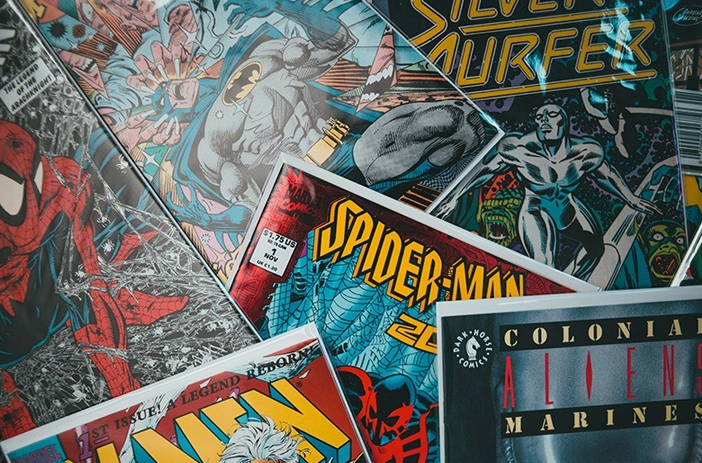
No matter what kind of collection you have, you can find someone, somewhere, willing to sell it on consignment. It may not be your first choice, and it may not be the best choice, but you'll be able to find it eventually. Is it worthwhile? Maybe, maybe not.
Selling your comics collection on consignment is an excellent way to strike a balance between the labor involved and the value you get out of the collection.
Is Selling on Consignment Your Best Choice?
Consignment is somewhere in the middle of the road among all the different options for selling a comic book collection. It may be your best option or not, and much of it depends on how much you're willing to deal with on your own.
If you want to maximize the money you get from your collection, you might be better off selling it yourself, as long as you have plenty of time to organize the comic books and play the waiting game. It's a lot more legwork and labor on your part, so this requires you to have some basic knowledge of the comics you have and how to evaluate and sell them.
It also likely means you're writing off your time as less valuable; many people don't consider the potential monetary value of their time. It may take months or even years to sell everything, depending on the overall quality, value, and condition of the books you have to sell, but you'll get the money potential money out of it doing it manually and individually.
If you want to minimize the time invested, selling your whole collection in bulk is the best method. This decision is often the case with inherited collections, where time constraints mean you need more leeway to get rid of the collection.
"I just want it gone" is the common through-line for this option. You'll get a little bit less than you would if you sell it yourself (short of just taking it all to the dump, heaven forbid), but it gets your comics sold for a fair price as efficiently as possible.
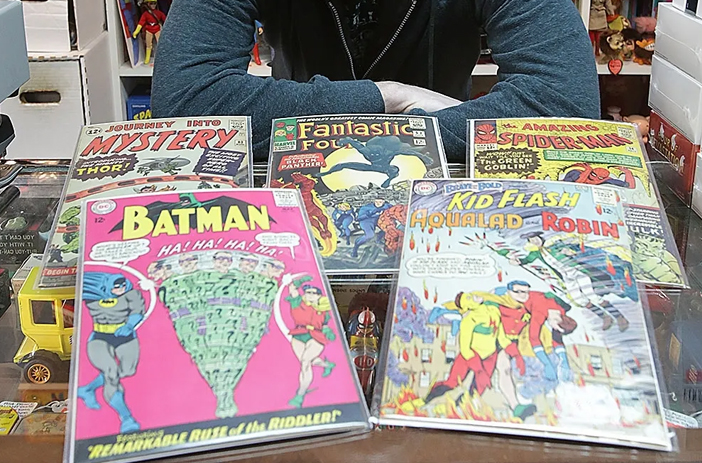
Selling your whole collection at once can be done to a private buyer, in bulk at once or in bulk lots for lines or characters (like all of your Spiderman books in one lot, all of your Superman books in another, etc.) or further subdivided if you want to put a bit more effort into it. You can also sell the whole thing to a shop, a dealer, or at auction.
Consignment is often the best option for somewhere in the middle. It takes longer than selling in bulk but gets you more money. It's faster and less work on your part than selling manually, but it gets you less money when commissions are paid.
In the end, the choice is yours. You also have additional options that can affect the calculus:
- Is it worth increasing the value of parts of the collection by getting them graded?
- Is it beneficial to get some of the books pressed and cleaned?
- Are there reasons to hold for a few more months to get more value?
- Is there some level of sentimentality involved?
Our recommendation?
Drop us a line! If you can describe your collection to us (and include a few pictures on this form), we can give you some advice and an appraisal to let you know your best option. Maybe it's selling with us. Perhaps it's selling in bulk or individually. Whatever the case, there's no obligation if you get a free quote from our comic experts.
It's helpful to know what your most valuable comics are and to have a realistic expectation of what you can receive for your comics - and if you decide to take us up on that, you can sell them to us at any time.

